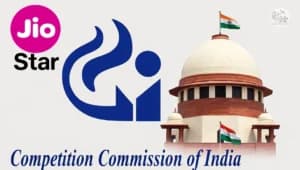The Supreme Court of India has allowed an appeal filed by Chamundeshwari Electricity Supply Company Ltd. (CESC) and set aside the orders of the Karnataka Electricity Regulatory Commission (KERC) and the Appellate Tribunal for Electricity (APTEL) in a dispute involving a 10 MW solar power project at Chitradurga, Karnataka.
Background of the Case
The dispute began when Saisudhir Energy (Chitradurga) Pvt. Ltd., the project developer, entered into a Power Purchase Agreement (PPA) with CESC in August 2012 for supplying solar power at a tariff of ₹8.49/kWh. The agreement required the developer to meet certain Conditions Precedent (CPs) within 240 days and achieve Commercial Operation Date (COD) within 12 months.
Read also:- Kerala High Court Denies Indian Citizenship Without Renunciation Certificate from Pakistan
However, delays occurred because the Karnataka Power Transmission Corporation Ltd. (KPTCL) could not complete the required 220 kV transmission lines on time. The developer sought extensions, but CESC insisted on reducing the tariff to ₹2.39/kWh, which led to litigation.
Despite interim orders from KERC restraining it, CESC encashed the performance bank guarantee of ₹24.9 crore, claiming the developer failed to meet obligations.
Read also:- Supreme Court Issues Notice on UP Bar Council's Rs.14K Fee for Advocates' Enrolment
On January 28, 2015, KERC ruled that the delay was a Force Majeure event beyond the developer’s control and ordered:
- Restoration of the encashed performance guarantee,
- Extension of contractual timelines, and
- Renegotiation of tariff.
APTEL upheld this decision on March 21, 2018.
The Supreme Court examined five key issues, including whether CESC was entitled to encash the guarantee and whether the delay qualified as Force Majeure.
The Court noted:
- The developer neither sought an extension under Article 5.7 of the PPA nor issued a proper Force Majeure notice under Article 14.5.
- The delay caused by KPTCL did not automatically extend timelines; relief had to be sought within the contractual framework.
- The invocation of the performance guarantee by CESC on 12.11.2014 occurred before KERC’s restraining order of 14.11.2014.
Read also:- Delhi High Court Overturns Registrar's Decision, Allows "PRO.FITNESS" Trademark Registration
“The non-fulfilment of the Respondent’s obligations within the stipulated time, non-seeking of extension under Article 5.7 or valid Force Majeure claim under Article 14, necessarily attracted Article 4.4 of the PPA.”
The Supreme Court ruled in favor of CESC, holding that the encashment of the performance guarantee was valid and in line with the PPA. It concluded that regulatory bodies cannot rewrite commercial contracts or alter risk allocation agreed between parties.
The Court therefore set aside both KERC’s order of January 28, 2015, and APTEL’s judgment of March 21, 2018.
Case: Chamundeshwari Electricity Supply Co. Ltd. (CESC) vs Saisudhir Energy (Chitradurga) Pvt. Ltd. & Anr.
Case Number: Civil Appeal No. 6888 of 2018
Judgement Date: 25 August 2025
Appellant: Chamundeshwari Electricity Supply Company Ltd. (CESC), Karnataka
Respondents:
Respondent No.1 – Saisudhir Energy (Chitradurga) Pvt. Ltd. (Developer)
Respondent No.2 – Karnataka Power Transmission Corporation Ltd. (KPTCL)















